Time to decide what becomes of those left behind
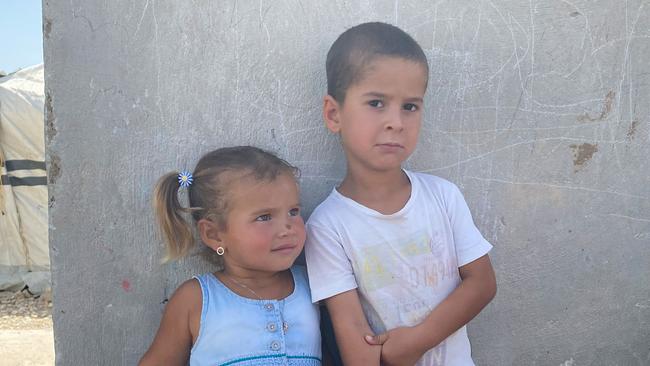
Three years after the self-proclaimed caliphate collapsed, tens of thousands of women and children remain detained in secure camps in northeast Syria.
Around 16 Australian women and 42 Australian children are among them, locked up out of sight and therefore out of mind of the country that has refused to take them back.
The previous Coalition government claimed that it was too dangerous for officials to go to the area in northeast Syria, controlled by the American-backed Kurdish Syrian Defence Force, to retrieve them.
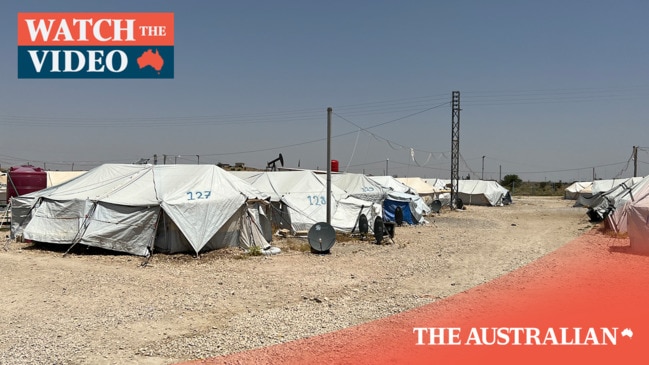
In fact, DFAT and ASIO officials were quietly travelling in and out of Syria over the same period that former prime minister Scott Morrison declared “not one’’ Australian official life would be placed at risk to facilitate the women’s repatriation.
Save the Children’s Australian CEO Mat Tinkler made the trip in June and documented his journey, to prove it can be done safely.
Two young families were repatriated several years ago, but the government repeatedly kicked the can down the road on the issue of what to do with the women, some of whom are considered to still potentially pose a threat due to the extremist views intelligence officials believe they continue to hold.
The Syria Question

‘Give them a childhood’: mum
Pressure is mounting on the Albanese government to deal with the problem it inherited from the Coalition and repatriate Australian citizens from Syria.
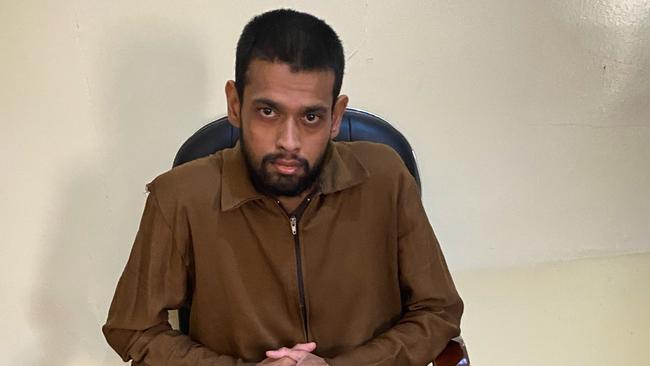
‘I didn’t do anything wrong. I want to come back’
An Australian member of Islamic State locked up in a Syrian prison is begging for forgiveness from his parents and wants to come home, saying he poses no threat.

ISIS families stranded by domestic laws
Government is not legally required to bring ISIS families home, but should do so to meet international obligations, law expert says
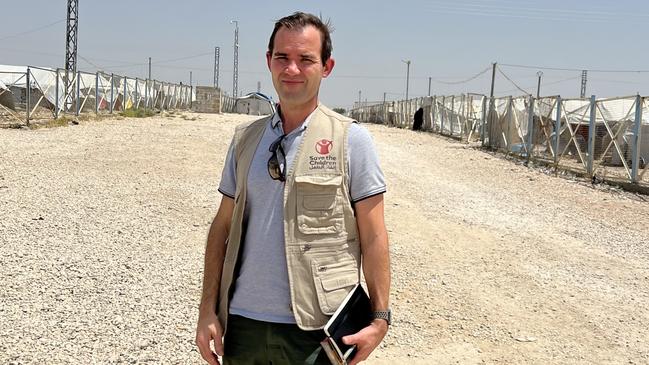
Aid chief proves Syria trip can be done
For years, the previous government said it was too dangerous to extract women and children. Save the Children’s Australian chief Mat Tinkler set out to dismiss that claim.
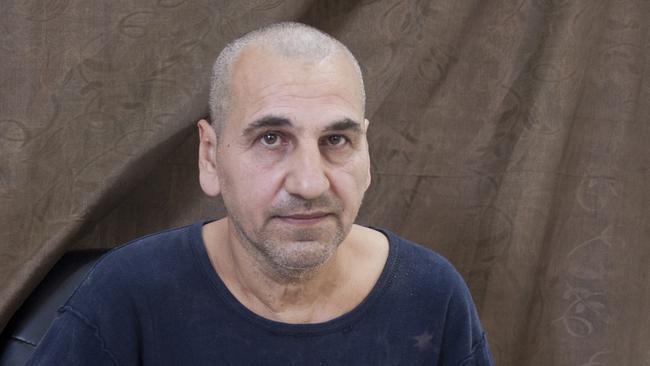
Roll call of the terror-linked prisoners
Australian men are among ISIS-linked prisoners in Syria.

Mystery over death of jailed Aussie teen
Officials and family seek answers over how Sydney teen Yusuf Zahab lost his life in the Syrian prison after an Islamic State attempted jailbreak.

Australian law does not require we bring Syria families home
Rather than safeguarding their rights, our legal system arms our government with extraordinary powers to prevent citizens from returning.
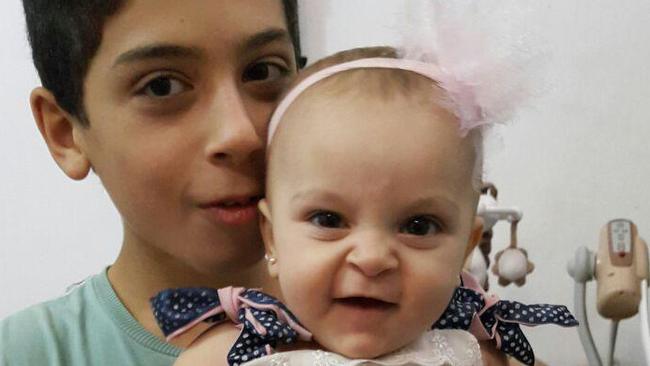
Aussie teen in Syrian prison feared killed
A 17-year-old Australian boy detained for three years without charge in a men’s prison in Syria is believed to have been killed after Islamic State attacked the jail trying to free their fighters.

Jihadi brides’ return ‘risky but ethical’
Repatriating Islamic State families undeniably brings security and legal challenges, but should be done for ethical and national security reasons, a leading counter-terrorism expert says.

Two of the saddest little girls you’ll meet
For the last seven years, Assya and Maysa Assaad have lived either under the rule of IS, or locked in a camp in the desert. All they want to do is go to school.

‘I go to sleep fearing they will be taken from me’
Mariam Raad wants stability and an education for her children, and a job for herself. But as a widow with four children living in a prison camp, her future is precarious.

Repatriated kids live quietly in community
The families of two dead IS fighters repatriated from Syria by the Australian government have been living in the community for several years.
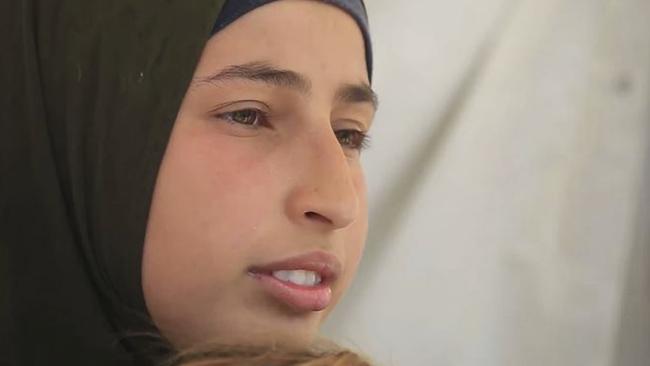
Childhood lost: ‘Sometimes I feel like time has stopped’
Shayma Assaad had barely finished Year Nine in Sydney when she was taken to Syria, married off and impregnated. Hers is one of the most disturbing stories of all the Australian women trapped in al-Roj camp.
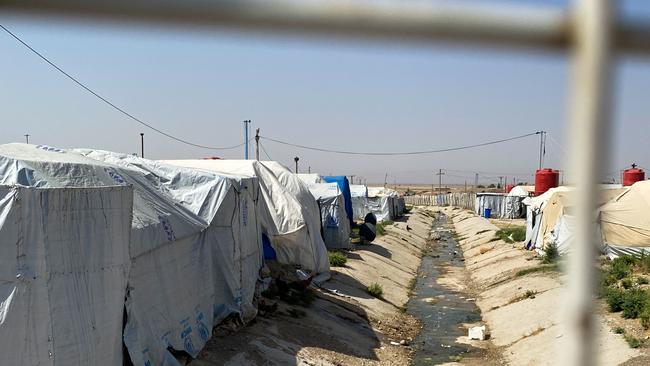
No exit and no hope in ‘torture’ camps
‘This is not a holiday camp, it’s not a refugee camp, it’s not a place where the basic needs of human beings are met in any way.’
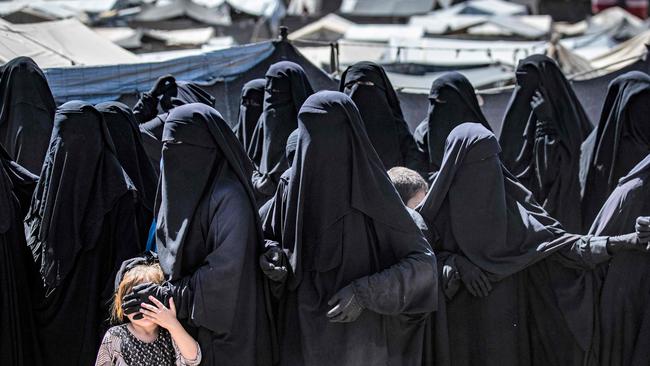
Time to decide what becomes of those left behind
There’s little sympathy in Australia for fellow citizens trapped in Syrian camps. Instead, there’s a dangerous ignorance of the truth.
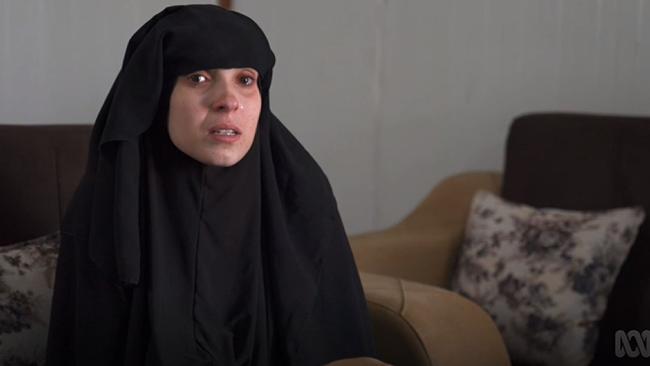
Jail swap sent Aussie mum, baby back to Islamic State
Sydney woman Nesrine Zahab has revealed how she fled ISIS while pregnant, only to be returned to the extremist group with her newborn baby in a prisoner swap.
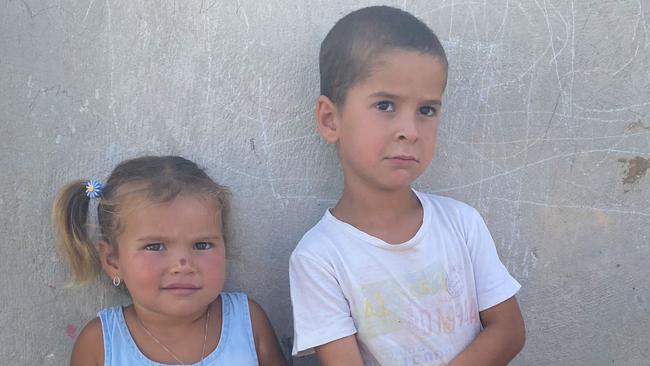
Islamic fate: the lost heirs of Aussie terror
Pressure is mounting on the PM to repatriate Australian women and children held in camps for Islamic State families in Syria, amid fears their indefinite detention is leading to a national security disaster.
The entire group has offered to voluntarily undergo terrorism control orders, allowing law enforcement and intelligence agencies to monitor their movements, communications and internet usage.
This level of surveillance is extremely expensive, and the government may have to increase funding to agencies such as ASIO and the Australian Federal Police to allow the control orders to be effectively monitored.
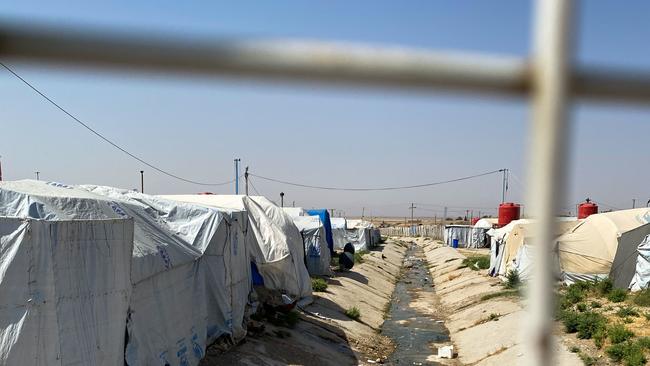
There are human rights obligations Australia needs to consider when deciding the future of these women and children.
First, and most compellingly, the children are innocent. Some were born in the camps and have never set foot outside the compound. They should not be punished for the sins of their fathers or the possible sins of their mothers. They have the right to an education, to healthcare, to a safe environment.
Second, the women are being held indefinitely, without charge or trial. Several may not be charged. Yet they’ve been detained for more than three years. This would not be permitted on home soil in Australia.
Third, their status is unclear. They are not considered combatants under international law. They are living in tents in a secure camp as if they were refugees, but they are not refugees. They have a country to go home to and families willing to assist them.
There are also legal and national security reasons why the stalemate over the future of these families should end.
Other democracies have begun to repatriate their women. Some countries, including The Netherlands, Germany and France, found themselves compelled to act by the courts. Others, including the United States, brought their women and children home voluntarily.
Behind the scenes, and occasionally publicly, the US is pressing Australia and other foreign nations to act, warning that failing to do so risks another national security crisis.
So keen is America to empty al-Roj and the even more problematic al-Hol camp, which houses 60,000 women and children and is controlled by Islamic State, it has repeatedly offered the use of its military assets to ensure officials from foreign countries can enter safely, and women and children can be safely removed, and even delivered to the safety of the border with Iraq.
The American interventions ruffled some feathers in Australia, with one MP telling The Weekend Australian it was “okay for the Americans with their huge national security infrastructure’’ to advocate for returning women who had been married to Islamic State fighters and supporters, and who would need expensive around-the-clock surveillance.
Another suggested the Americans were embarrassed by their decision 20 years ago to detain terror suspects indefinitely offshore in Guantanamo Bay in Cuba.
The politics of the decision on the future of the Islamic State families is diabolical.
The Australian public has little sympathy for those who left Australia to join their husbands in Syria in a bloody war against the world from 2013-19. There is little public understanding of the fact many of these women were taken by their parents, were coerced by their families or husbands, or were children themselves when they left Australia almost 10 years ago. It is not accurate to say some were “married’’ to Islamic State fighters at the age of 13 or 15. They were children, trafficked and used as sex slaves.
Regardless, it is not necessary to morally resolve the question of which individual women “deserve’’ to come back to Australia and which don’t.
On any measure the continued indefinite detention of women and innocent children is a failure of policy.
They need to be brought back to face justice or resume life in the community with appropriate surveillance. If convicted, they should serve whatever sentence courts deem appropriate.
There is also the inherent unfairness of forcing the Kurds – who were at the frontline of the global coalition against Islamic State of which Australia was a part – to maintain and manage these camps.
The Kurdish administration in Syria is not a fully recognised government, it faces multiple threats from Islamic State sleeper cells and its large neighbour, Turkey, and the vast majority of its people live below the poverty line.
The Kurdish people suffered more than most at the hands of Islamic State, yet the west for political convenience expects them to detain and care for Islamic State families indefinitely.
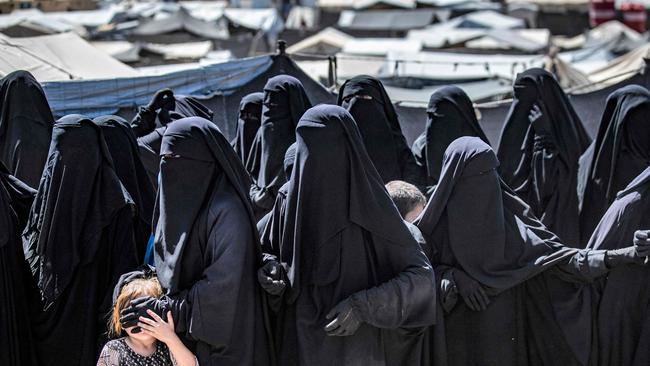
Australia must establish a plan for ending the indefinite detention of these families.
If it follows the precedents set in other countries, that would involve bringing each woman and her children back and placing them under the terrorism control orders they have agreed to accept, and charging and prosecuting the adults where evidence exists.
ASIO and the AFP have already done substantial work behind the scenes investigating each woman and their wider families in Australia and overseas.
To better integrate the families in the wider Australian community, they should be supported, with children’s health and nutrition prioritised, and the children should be sent back to school.
Such support for the families would be the best way for Australia to meet its legal, moral and national security obligations.



One of the bitter legacies of the short-lived but devastating rise of Islamic State is the families left behind by those who went to join the terror group.